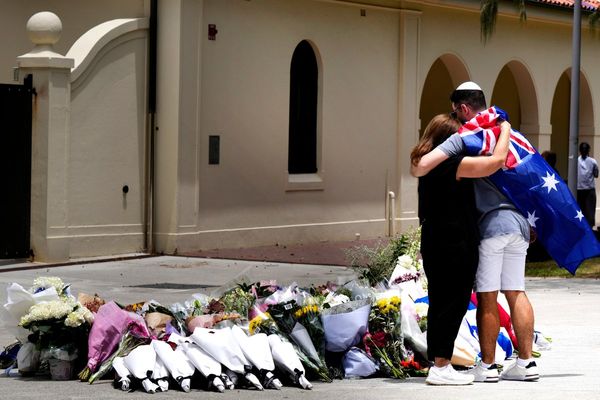
The Supreme Court is set to tackle a case that could have significant implications for former President Donald Trump's potential bid to return to the White House in 2024. This marks the court's most direct involvement in a presidential election since the controversial Bush v. Gore decision in 2000. The case revolves around a constitutional provision intended to prevent individuals who have 'engaged in insurrection' from reclaiming power.
The dispute originated in Colorado, where Republican and independent voters sought to remove Trump from the state's Republican primary ballot due to his efforts to overturn the 2020 election results. The state's highest court ruled that Trump's involvement in the January 6, 2021, Capitol attack rendered him ineligible to hold office again and therefore should not be on the primary ballot.
Should the Colorado voters prevail, it would serve as a declaration by the justices, including three appointed by Trump himself, that the former president engaged in insurrection and is barred by the 14th Amendment from seeking office again. This outcome could potentially jeopardize Trump's campaign efforts.
On the other hand, a ruling in favor of Trump would likely put an end to similar efforts in Colorado and other states aiming to exclude him from future ballots. However, even in the event of a less conclusive ruling, the issue could resurface after the general election, potentially leading to a full-blown constitutional crisis.
The Supreme Court has indicated its intent to act swiftly on this matter, shortening the period for written briefing and oral arguments. It is worth noting that Trump himself is currently appealing the ruling of Maine's Democratic secretary of state, who deemed him ineligible to appear on the state's ballot due to his role in the Capitol attack. Both the rulings in Colorado and Maine are on hold until the appeals process concludes.
Despite not attending the upcoming Supreme Court session, Trump's legal battles are far from over. He faces criminal charges related to the events of January 6 and other inquiries. Furthermore, additional election-related litigation may arise in the future.
It is essential to mention the historical context of the 2000 Bush v. Gore case, which has faced intense criticism over the years. The current case differs in that both parties involved are seeking a swift resolution.
While several of the justices on the current court were involved in the Bush v. Gore decision, including Justice Clarence Thomas, calls for recusal have emerged due to Thomas's wife's support for Trump's efforts to overturn the 2020 election results. However, Thomas has chosen to remain involved in the case.
In recent years, the Supreme Court, bolstered by appointments made by Trump, has made significant decisions that have caused controversy. These include overturning long-standing abortion rights, expanding gun rights, and striking down affirmative action in college admissions.
Beyond the issue of Trump's eligibility to appear on the ballot, there are other matters related to the former president and the January 6 attack that have also reached the Supreme Court. While the court declined to expedite a ruling on Trump's claims of immunity from prosecution, it remains a possibility depending on the decision of an appeals court based in Washington, D.C. Additionally, the court is set to hear an appeal in April that could have wide-ranging implications for the charges stemming from the Capitol riot.
As the Supreme Court prepares to navigate this critical case, its ruling will undoubtedly have a significant impact on Trump's political future and the broader conversation surrounding the events of January 6.







